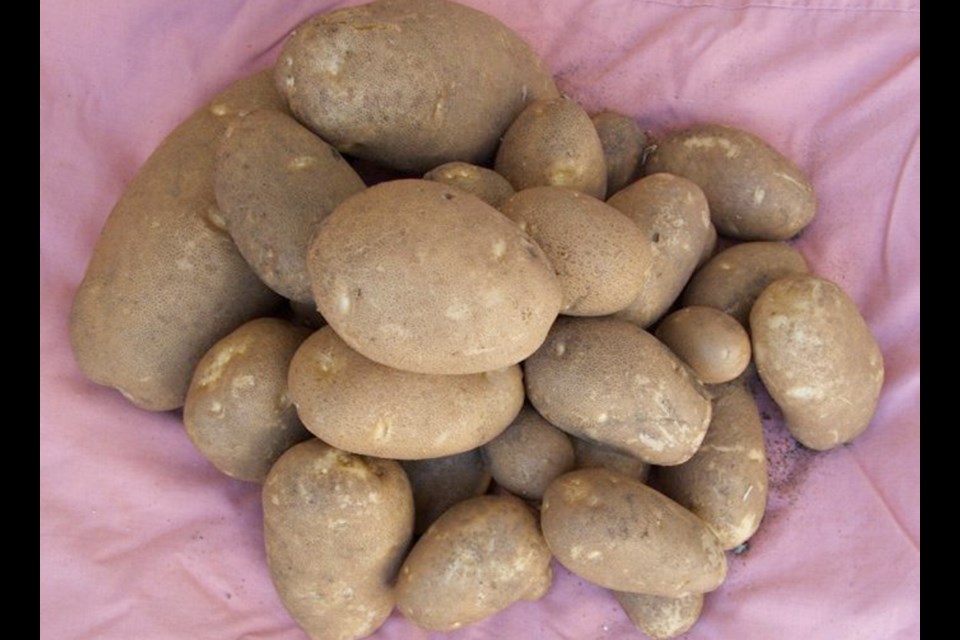Dear Helen: I have a Dracaena that has developed a long, bare stem with a top notch of long leaves up at ceiling level. How can I reclaim this plant?
W.M.
Dear W.M.: You have options. One is to purchase a young replacement plant. Another is to remove the tuft of leaves with a short stub of cane and firm the stub gently into fresh planting mix. Water only modestly and keep the pot in a warm place.
If you prefer to secure root growth beneath the leaves before severing the crown of the plant, use a method called air layering. Cut into the stem about 10 centimetres beneath the lowest leaf. Remove a one-cm band of bark.
Cut the bottom from a clear, clean plastic bag to make a tunnel and secure the bottom end around the cane below the cut. Place damp sphagnum moss in the bag and tie the top. When roots can be seen inside the bag (after about two months) sever the stem and carefully pot the new, rooted plant.
Try shortening the old stem and keep the soil just modestly moist. It will likely grow fresh leaves. You can even use stem pieces, five to 7.5 centimetres long, as cane cuttings. Each piece needs to have one leaf node. Bury the lower half of each piece in planting mix, with the node facing upward.
Dear Helen: I see that you, and others, stress the importance of removing all remaining leaves from rose canes in winter. Why?
N.R.
Dear N.R.: Pulling away and disposing of still-clinging foliage on roses, preferably before the end of December, is a very beneficial measure that helps to remove leaf-borne disease spores. Use a gentle downward tug to remove each leaf.
It’s equally important to clean up fallen leaves and debris on the ground under and around the plants, for the same reason. A mulch of compost will further help to smother any lingering disease spores.
Dear Helen: Is it absolutely necessary to use only purchased, certified seed potatoes for planting?
P.L.
Dear P.L.: I have always recommended this as the preferred and safest course of action. Seed potatoes sold in garden centres in the spring are certified to be disease free. Using them to plant is a way of protecting our gardens and helping to ensure a good, clean potato harvest.
That said, I know that some gardeners select potatoes from their cleanest, strongest, most productive plants for planting the following year. And I must admit I was more than impressed with the potatoes my neighbour Tom grew this year from organic Russet tubers he had purchased at a health food store.
He planted just two small potatoes left from the bag he’d bought. They yielded an enormous pile of perfectly formed, scab-free, oblong tubers. He gave me some to try. They were delicious, with that vivid potato flavour that is so hard to find in potatoes these days.
Tom tells me that he digs compost into the soil before planting, and gives each potato planting site a handful of a balanced fertilizer. He uses 6-8-6, but for those of us who don’t use chemically treated fertilizers there are natural-source equivalents with ingredients such as seed meals, rock phosphate and kelp meal.
To make sure the area for potato planting is acidic enough for the suppression of scab disease, Tom also incorporates into the soil “a good dusting of sulphur,” available as a yellow powder at garden centres and farm supply stores. Sulphur is also one of the oldest known pesticides. It is now used mainly as a fungicide.
Because most potatoes bought for eating are treated with sprout inhibitors, I would try this only with organic potatoes.
GARDEN EVENT
The year-round food garden. Russell Nursery, 1370 Wain Rd. in North Saanich, is presenting Planning for a 12-Month Harvest with well known local garden educator and entomologist Linda Gilkeson on March 7, at 9:30 a.m. at the nursery. This will be a very popular class and space is limited. Reserve a place by phoning 250-656-0384 or emailing [email protected]. Include your phone number. The nursery is closed now until Feb. 1, but they will be checking email and phone messages while they are closed. Learn how to manage your garden to maximize production and grow fresh food all year long. russellnursery.com.



